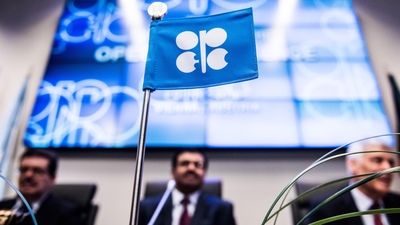OPEC did not manage to agree on a straightforward production strategy yesterday (2 June) as Iran insisted on boosting its own output despite the fact that Saudi Arabia, Iran’s major rival, promised not to flood the market with more of its crude. Similar tensions between these two competitors had previously affected OPEC meetings, including in December last year, when the cartel did not agree on a formal production target for the first time in a few years. However, yesterday’s meeting proved to be more conciliatory than usual, with Iran keeping its comments about Saudi Arabia to a minimum.
Although the group failed to agree on an output target, OPEC unanimously decided to appoint Nigeria’s Mohammed Barkindo as its new Secretary-General after years of friction over the issue. Major OPEC members try hard to give the group a new purpose and thus try to deal with its waning significance. Despite the negative news about the output, Riyadh calmed down the market by saying that it would not raise its production even more as it is already producing oil near record highs.
“We will be very gentle in our approach and make sure we don’t shock the market in any way,” Saudi Energy Minister Khalid al-Falih said and added that “there is no reason to expect that Saudi Arabia is going to go on a flooding campaign”. The market has grown increasingly used to the constant clashes between Riyadh and Teheran in the past two years, who are moreover fighting a proxy war both in Syria and Yemen. Saudi Arabia wanted to agree on a global output freeze with the aim of stabilizing oil markets in the past but it wanted all partners to join the deal, which would also involve non-OPEC Russia. This, however, depended on Iran agreeing to freeze its output, and thus the deal has never really materialized.




